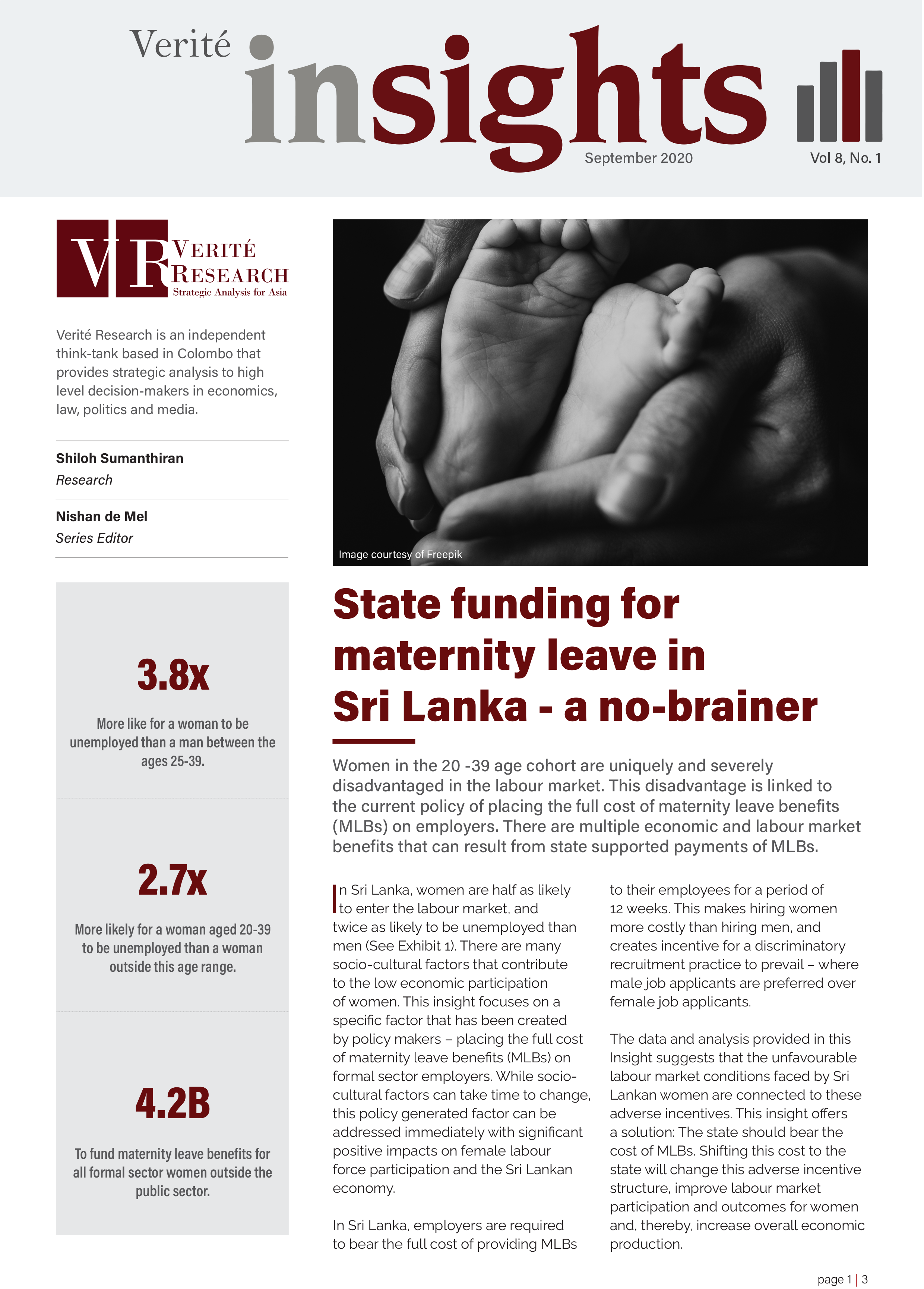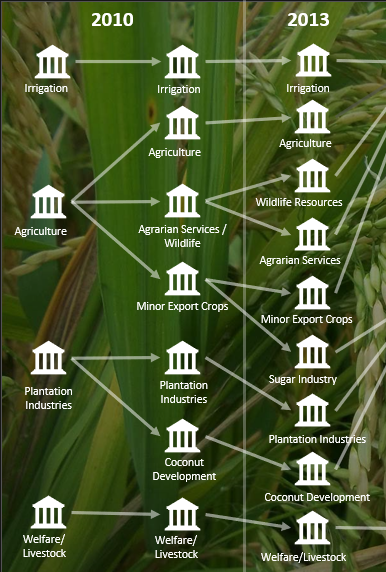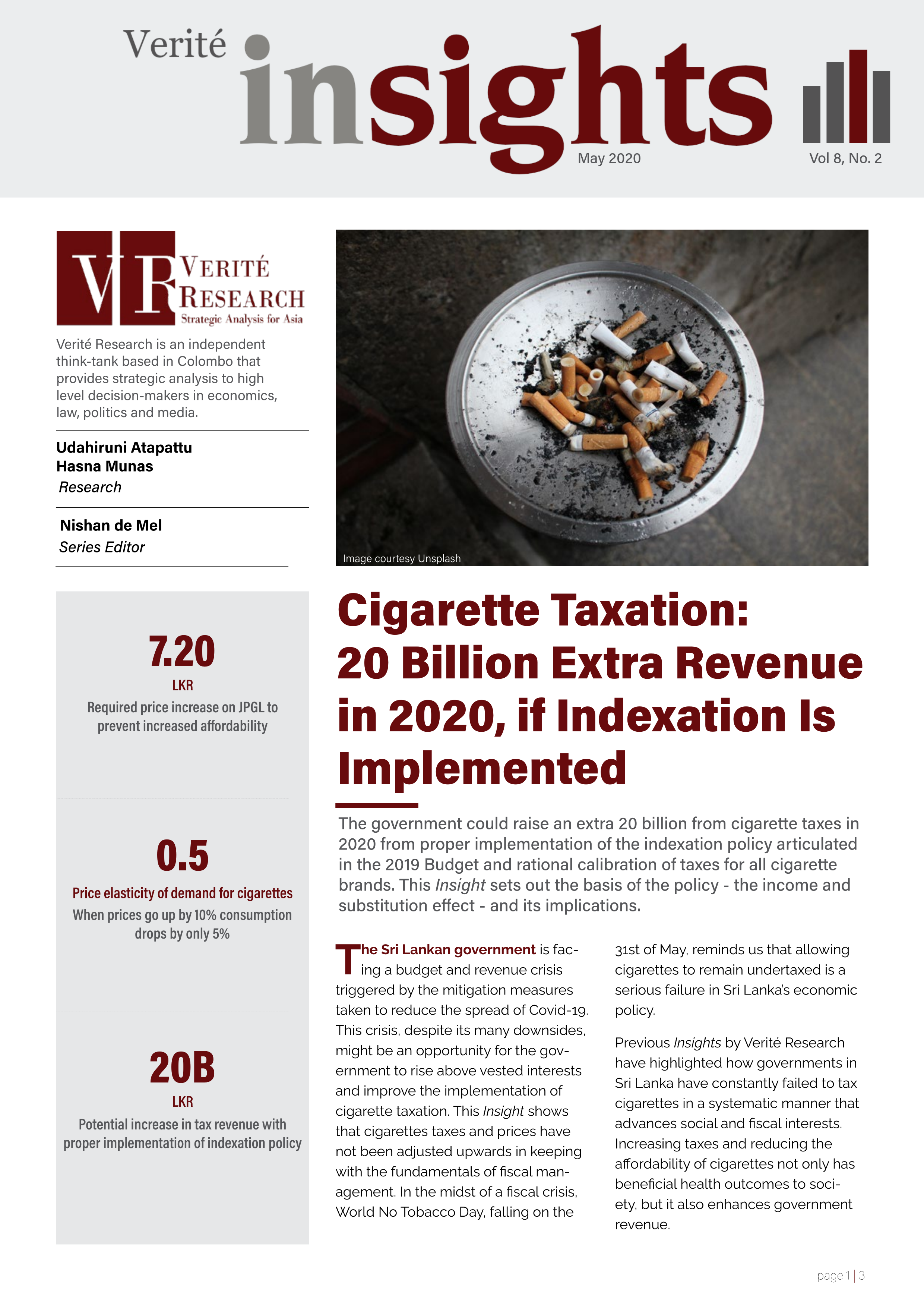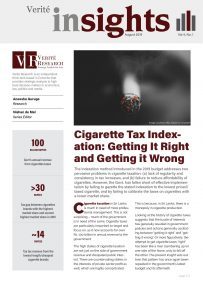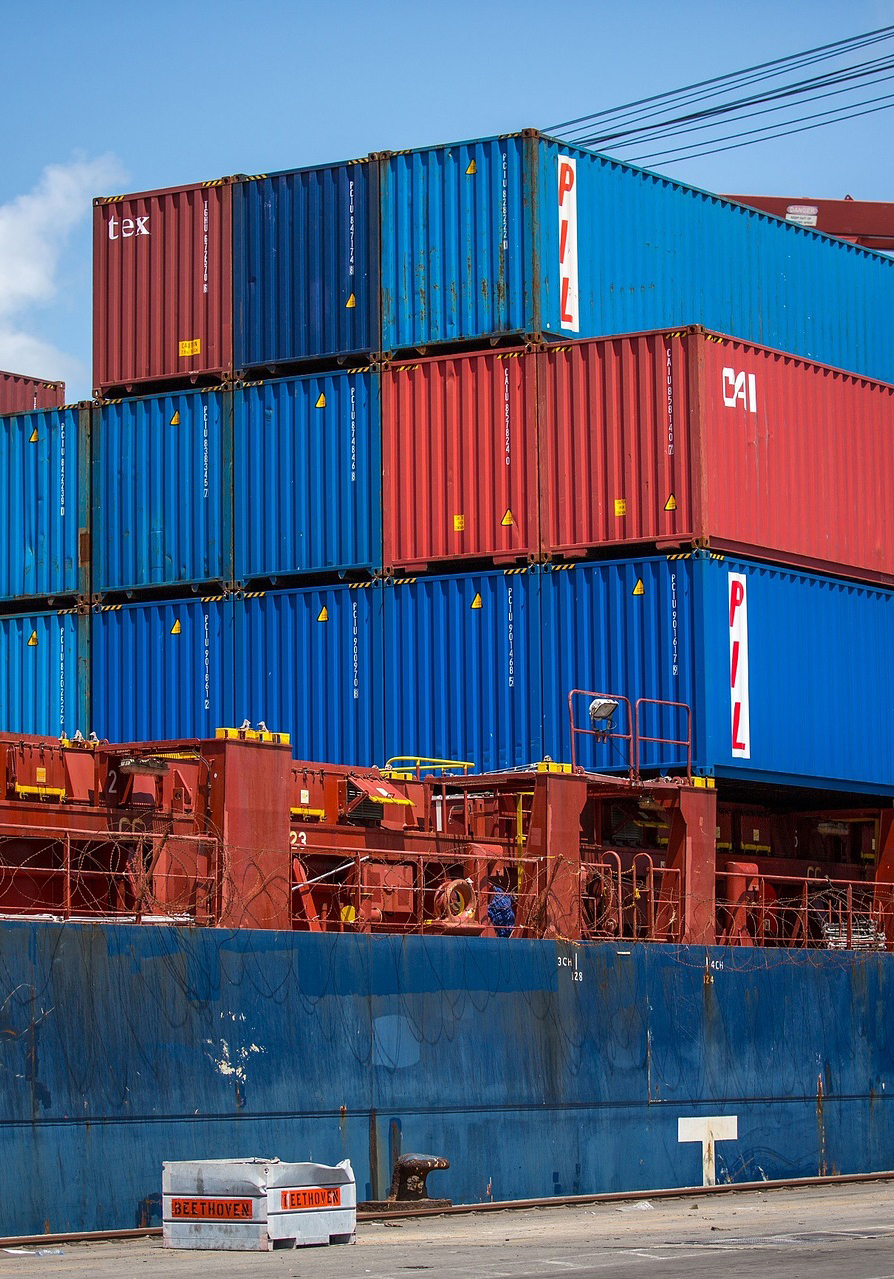Sri Lanka is highly dependent on international loans from multilateral and bilateral sources to finance infrastructure development. Multilateral and bilateral borrowing is often favoured by governments such as Sri Lanka because such financing tends to have ‘concessional’ elements, relative to the international financial markets. However, this report finds that the practice of ‘tying’ loans to procurement from contractors in the lending country and resulting cost escalations can significantly erode the concessional or grant element of these loans.
Sri Lanka is highly dependent on international loans from multilateral and bilateral sources to finance infrastructure development. Multilateral and bilateral borrowing is often favoured by governments such as Sri Lanka because such financing tends to have ‘concessional’ elements, relative to the international financial markets. However, this report finds that the practice of ‘tying’ loans to procurement from contractors in the lending country and resulting cost escalations can significantly erode the concessional or grant element of these loans.
Women in the 20-39 age cohort are uniquely and severely disadvantaged in the labour market in Sri Lanka. This disadvantage is linked to the current policy of placing the full cost of maternity leave benefits (MLBs) on employers.
Ministries are the overarching bodies that house relevant government institutions and functions within a particular subject area. They are responsible for the formulation, implementation, monitoring, and evaluation of national-level policies and strategies in their assigned sectors (such as health, education, and agriculture). In this regard, they coordinate with the institutions under their purview. Therefore, ministries—and by extension ministers—are vital to determining the institutional effectiveness and efficiency of service delivery by the public sector. However, public sentiment suggests otherwise. Public sector inefficiency has been a long-standing issue that successive governments in Sri Lanka have failed to address effectively. The general perception of the public is that the elected representatives who run government make an already inefficient system worse, and this perception is becoming more entrenched with time. The present paper seeks to address this gap between expectations of the role of ministers and ministries and reality as experienced and perceived by society. It highlights two types of problems that comprise the irrationality of present cabinet formation and seeks to address how effective and efficient governance in the public sector can be achieved. A Blueprint document that proposes a formulated rational structure for government, building on and refining the recommendations of the…
International trade data are the foundational basis when formulating trade policies and assessing their impacts. Trade data is vital for firms engaging in international trade to make sound business decisions. Unfortunately, when compared to regional and international best practice, Sri Lanka is failing to use trade data effectively for the benefit of the country.
The Government could raise an extra Rs. 20 Billion from cigarette taxation in 2020 from the proper implementation of the indexation policy articulated in the 2019 Budget and rational calibration of taxes for all cigarette brands.
කෝවිඞ් -19 වෛරසය පැතිරීම අවම කිරීම සඳහා ගෙන ඇති ක්රියාමාර්ග හේතුවෙන් ශ්රී ලංකා රජය අයවැය හා ආදායම් අර්බුදයකට මුහුණ දී තිබේ. මෙම අර්බුදයේ බොහෝ අවාසි පැවතුනත්, මෙම තත්ත්වය, ඇතැම් පාර්ශවකරුවන්ගේ අභිලාෂයන් අනුව කටයුතු කිරීමෙන් ඈත් වී, දුම්වැටි බදු ක්රියාත්මක කරන ආකාරය ක්රමවත් කිරීමට රජයට හොඳ අවස්ථාවක් ලෙස භාවිත කල හැකිය. මෙම විශ්ලේෂණය පෙන්වා දෙන්නේ ලංකාවේ දුම්වැටි බදු සහ මිල ගණන් ඉහල දැමීම, රාජ්ය මුල්ය කළමනාකරණ මුල ධර්ම වලට අනුකුලව සිදු වී නොමැති බවයි. රට රාජ්ය මුල්ය අර්බුදයකට මුහුණ දී තිබෙන අවස්තාවක උදාවන, මැයි 31 වන දිනට යෙදී තිබුන ලෝක දුම්කොළ විරෝධී දිනය අපට සිහිපත්කර දෙන්නේ දුම්වැටි බදු ක්රමානුකුලව ඉහල දැමීමට අසමත් වීම ශ්රී ලංකාවේ ආර්ථික ප්රතිපත්තියේ බරපතල අසාර්ථකත්වයක් බවයි.
The indexation method introduced in 2019 Budget addresses two pervasive problems in cigarette taxation: (a) lack of regularity and consistency in tax increases, and (b) failure to reduce affordability of cigarettes.
ஒரு வியாபாரம் ஏற்றுமதியில் ஈடுபடுவதற்கு ஏற்றுமதியாளராக பதிவூசெய்ய வேண்டும். தனி உரிமையாளருக்கானஃ பங்குடைமைக்கான தற்போதைய பதிவூ நடைமுறையில் குறைந்த பட்சம் 10 படிநிலைகளும் ஆறு வெவ்வேறு நிறுவனங்களும் சம்பந்தப்பட்டுள்ளன. இருந்த போதும் இச்செயன்முறை பற்றிய மட்டுப்படுத்தப்பட்ட தகவல்களே காணப்படுகின்றது. தற்போதைய ஏற்றுமதி பதிவூ நடைமுறைகள் நீண்டதுஇ செயற்திறனற்றது மற்றும் தொந்தரவூமிக்கது என எமது ஆய்வூ கண்டறிந்துள்ளது. இச்செயன்முறையானது பெரிய நிறுவனங்களைவிட அரசின் உதவியில் தங்கியூள்ள சிறிய மற்றும் நடுத்தர வர்தகங்களையே பிரதானமாக பாதிக்கின்றது.
அரசாங்கத்தினால் கடைபிடிக்கப்படும் நடைமுறைகள் ஊகிக்கக்கூடியதாகவூம்இ செயற்திறன் மிக்கதாகவூம் அதியூயர் பயனை அடையக்கூடியதாகவூம் இருக்க வேண்டும். இவ்வாறான அம்சங்கள் தவறும் பட்சத்தில் எதிர் நோக்கக்கூடிய பிரச்சினைகளை இக் கொள்கைச் சுருக்கம் ஆராய்கின்றது. இது தற்போது அமுலில் காணப்படும் இறக்குமதி வரிவிலக்குத் திட்டங்களை நிர்வகிக்கும் வழிமுறைகளை ஆய்வூ செய்கின்றது.

